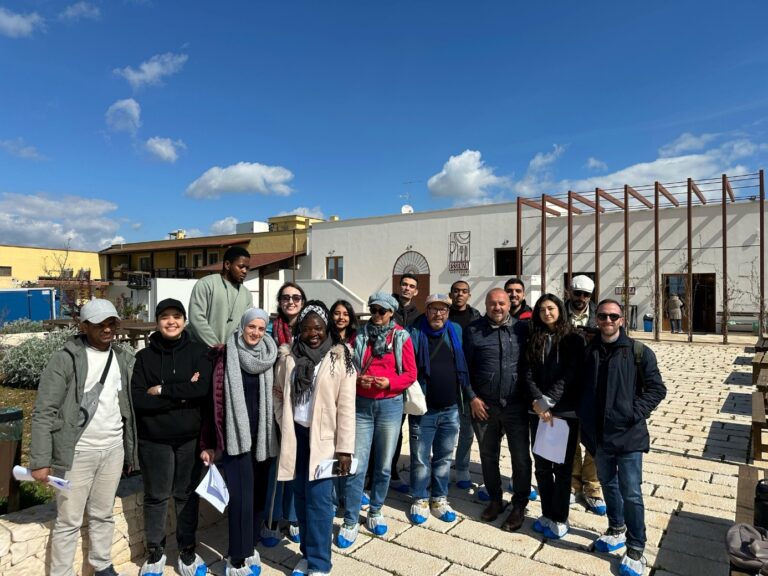On April 9th, 2025, under the framework of CIHEAM Bari and the CIHEAM-Bari (International Center for Higher Agronomic Studies) Master program 1st year on “ Sustainable Development and Agroecosystem Resilience (SARe), The CIHEAM Bari leader of Teaching 8: Agrifood-Network Development, jointly with the Moroccan network of agroecological initiatives (RIAM), the international network for Community-supported Agriculture (URGENCI) joined forces to design and implement an original field activity as part of practical training on agrifood and stakeholders’ networks. The goal was to make students more knowledgeable with Participatory Guarantee Systems.
PGS is a peer-to-peer quality assurance model that has gained ground in different contexts around the globe to evaluate the implementation of the agroecological principles on production units. It has even been recognized by the International Federation of Organic Agriculture Movements as an official organic certification process in major countries like Brazil and India.
 The students, from 9 Mediterranean and African countries, enrolled for their first year at the CIHEAM Bari, took on the clothes of PGS evaluators and visited the Querceta Farm, near Putignano, the Italian region of Puglia. They were co-mentored by CIHEAM Bari, RIAM and UREGENCI experts for the PGS implementation and later welcomed by the farm owners and managers, Gianluca Gigante, and Amalia Gigante, with whom they could spend a full morning exchanging on the different dimensions of the farm activities. They made use of the evaluation forms that they had predesigned within the course during previous lectures based on the RIAM PGS survey.
The students, from 9 Mediterranean and African countries, enrolled for their first year at the CIHEAM Bari, took on the clothes of PGS evaluators and visited the Querceta Farm, near Putignano, the Italian region of Puglia. They were co-mentored by CIHEAM Bari, RIAM and UREGENCI experts for the PGS implementation and later welcomed by the farm owners and managers, Gianluca Gigante, and Amalia Gigante, with whom they could spend a full morning exchanging on the different dimensions of the farm activities. They made use of the evaluation forms that they had predesigned within the course during previous lectures based on the RIAM PGS survey.

Their approach was multidimensional, with several teams addressing specific aspects of the agroecological production: crop management, soil management, fertilization, prevention and control of pest and disease, crops and seeds used, farm equipment, water- energy management, farm waste management and the social approach.
They also paid attention to the history of the farm, who is now a large-scale modern operation, on 5 sites, 300 hectares, combining dairy, milk processing, meat, vegetable, agroforestry and animal feed productions, as well as agritourism and various pedagogical activities.
Gianluca Gigante, the owner and manager of the farm, praised the curiosity and the sagacity of the students:
“It is important to share our experience and knowledge, as it exactly what is necessary for our knowledge-intensive practice of agriculture”.
Following the visit, they prepared PGS evaluation reports and gathered as a local PGS committee would do to decide collectively whether the farm would qualify for the agroecology label. This offered the students an opportunity to understand the differences between agroecology and organic production model.




This work was realised within the ATTER (Agroecological Transitions for TERritorial food systems) project. This project has received funding from the European Union’s Horizon 2020 research and innovation programme under the Marie Skłodowska-Curie grant agreement No 101007755.

